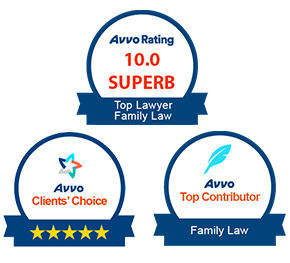
The valuation and distribution of marital property can be a frustrating and contentious issue for both parties. The process can become even more difficult when the assets include an interest in a business, because the business interest is often the most valuable part of the divorcing couple’s community property.
There are many types of privately-held businesses, including professional practices like doctors, dentists, lawyers and accountants and retail stores, food shops, online businesses and restaurants. Each business has it’s own unique issues but there are basically three methods of dealing with business asset division during divorce.
Division of a business in a fair and equitable manner, requires the experience of professional.
Valuing a business is a very complex task, often requiring the assistance of a professional business appraiser. The appraiser will select the most appropriate valuation method based upon the characteristics of the business and the availability of relevant information.
Tip on business appraisels. It’s rare for two experts to agree on valuation, it can create problems. If each spouse provides their expert’s valuation then the judge will decide. If the divorcing couple can agree on using one valuation expert, they can maintain control, save a considerable amount of money, time and trouble.
-Barbara Hammers, Senior Litigating Attorney
Market Valuation
The market approach determines the value of the business by comparing the business to similar businesses that have been sold. The market approach is very similar to the method used by real estate agents when valuing homes. The difficulty with the market approach lies in finding data about other comparable business sales in the same geographic area. In fact, most businesses being valued are small, privately held businesses, while most transactional information available relates to large publicly held companies, with significant differences in size, sales, profits and geographic location.
Income Valuation
The income approach determines the value of the business using one or both methods that convert anticipated economic benefits into a present single amount. The income approach is the most widely used method for valuing small, privately held businesses. In reaching a business valuation, the expert will collect and review the business’ historical financial data, in an attempt to estimate future business earnings. The valuation expert will attempt to determine the future income, along with the risk that the projected income will actually be received.
Asset Valuation
The asset approach determines the business’ value by using one or more methods based on the value of the assets minus any liabilities. asset approach initially seems very simple; however, there are a number of complicating factors. For example, the value of property and equipment can, at times, be difficult to ascertain because their value is not always the equivalent of book value. In addition, assets like goodwill and intellectual property are notoriously difficult to value, because they are intangible. The asset approach is typically relied upon when the business is an investment or holding company or with very small businesses or professional practices where there is little or no goodwill.
Co-ownership
With co-ownership, both spouses continue to own the business after the divorce. If spouses remain amicable, it may be possible to work together after a break-up. But this is not for the weak of heart; it will require a solid working relationship or high level of trust in the other’s management skills. If there is a great deal of rancor, continued co-ownership is a recipe for disaster and not really a viable solution.
Sell the business and divide the profits
The pros of this option are that both spouses may profit from a sale of the business and can use the proceeds to invest in their own business ventures. Plus, spouses can avoid additional financial ties to their ex-spouse. The downside is that this could take some time; many businesses can’t be sold easily and it may be months before a buyer is found.
Buy-out the other spouse’s interest
In a buyout, one spouse keeps the business and buys (pays for) the other spouse’s interest. A buyout may be the best option assuming there are sufficient assets to complete the transaction. This can be accomplished if the buying spouse has enough cash or liquid assets available to pay off the selling spouse. Alternatively, the spouses could offset the selling spouse’s portion of the business with other assets, for example:
Contact
- Call our Santa Monica office at (310) 458-0796. Located at Ocean Park and 28th Street.
- Call our Costa Mesa/Newport office at (949) 631-2805. Located on Victoria near the 55.
- We accept most major credit cards.


